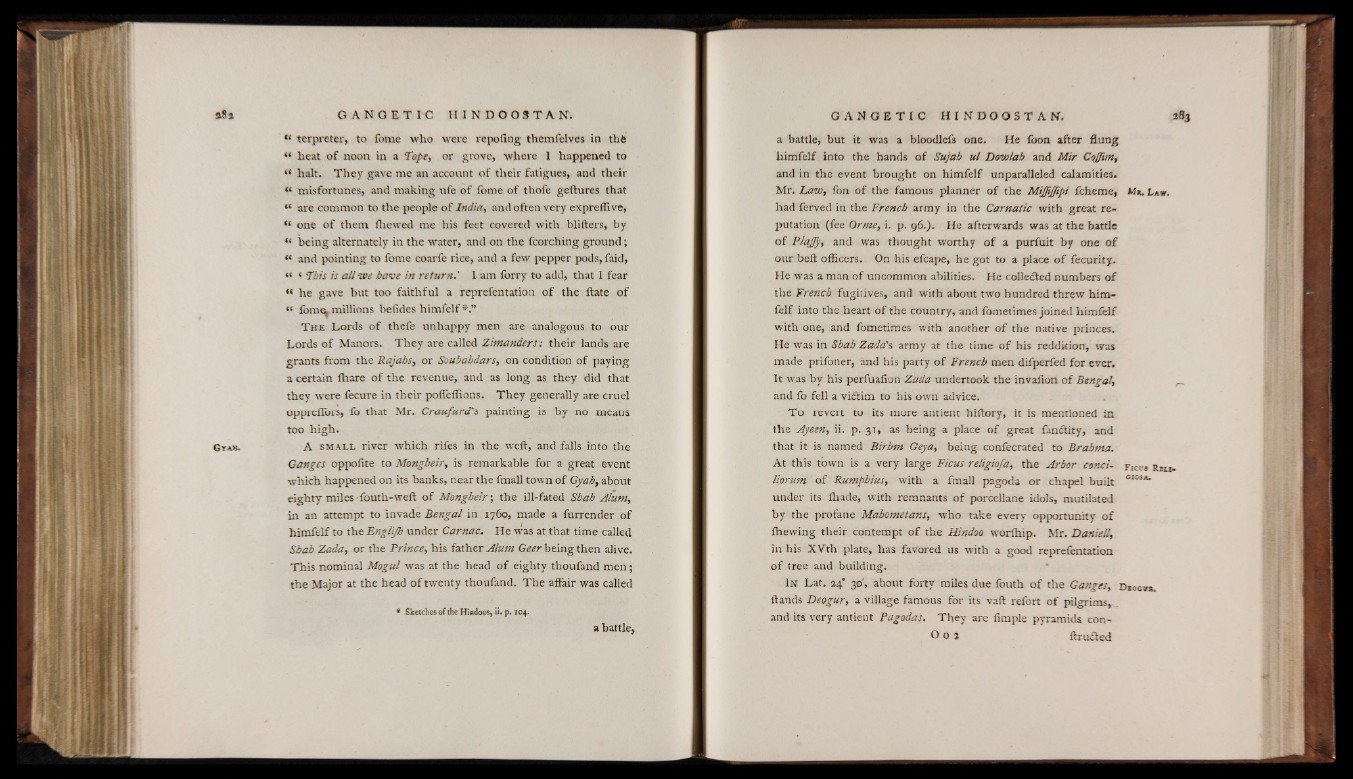
“ terpreter, to fome who were repofing themfelves in this
“ heat o f noon in a Tope, or grove, where I happened to
“ halt. They gave me an account o f their fatigues, and their
misfortunes, and making rife o f fome of thofe geftures that
“ are common to the people o f India, and often very expreflive,
“ one o f them fliewed me his feet covered with blifters, by
“ being alternately in the water, and on the fcorching ground;
“ and pointing to fome coarfe rice, and a few pepper pods, faid,
“ ‘ This is all we have in return.' I am forry to add, that I fear
“ he gave but too faithful a reprefentation o f the ftate of
« fom^ millions befides himfelf
T h e Lords o f thefe unhappy men are analogous to our
Lords o f Manors. They are called Zimanders: their lands are
grants from the Rajabs, or Soubabdars, on condition of paying
a certain fhare o f the revenue, and as long as they did that
they were fecure in their pofieflions. They generally are cruel
opprefiors, fo that Mr. Craufurd's painting is by no means
too high.
A s m a l l river which rifes in the weft, and falls into the
Ganges oppofite to Mongbeir, is remarkable for a great event
which happened on its banks, near the fmall town o f Gyab, about
eighty miles fouth-weft of Mongbeir; the ill-fated $bah Alum,
in an attempt to invade Bengal in 1760, made a furrender of
himfelf to the Engli/b under Carnac. He was at that time called
Sbab Zada, or the Prince, his father Alum Geer being then alive.
This nominal Mogul was at the head of eighty thoufand men;
the Major at the head o f twenty thoufand. The affair was called
* Sketches of die Hindoos, ii. p. 104.
a battle,
a battle, but it was a bloodlefs one. He foon after flung
himfelf into the hands of Sujab ul Dowlab and Mir CoJJim,
and in the event brought on himfelf unparalleled calamities.
Mr. Law, fon of the famous planner o f the MiJJiJJipi fcheme, M * . L aw .
had ferved in the French army in the Carnatic with great reputation
(fee Orme, i. p. 96.). He afterwards was at the battle
of PlaJJy, and was thought worthy o f a purfuit by one o f
our beft officers. On his efcape, he got to a place o f fecurity.
He was a man o f uncommon abilities. He colle<Sted numbers o f
the French fugitives, and with about two hundred threw himfelf
into the heart of the country, and fometimes joined himfelf
with one, and fometimes with another o f the native princes.
He was in Sbab Zada's army at the time o f his reddkion, was
made prifoner, and his party of French men difperfed for ever.
It was by his perfuaiion Zada undertook the invafion o f Bengal,
and fo fell a vi£tim to his own advice.
To revert to its more antient hiftory, it is mentioned in
the Ayeen, ii. p. 31, as being a place o f great fanctity, and
that it is named Birhm Geya, being confecrated to Brabma.
At this town is a very large Ficus religiofa, the Arbor conci- pIcr, „ ,T.
liorum of Rumpbius, with a fmall pagoda or chapel built CICSA*
under its fhade, with remnants of porcellane idols, mutilated
by the profane Mahometans, who take every opportunity o f
ihewing their contempt o f the Hindoo worihip. Mr. Daniell,
in his XVth plate, has favored us with a good reprefentation
o f tree and building.
I n Lat. 24* 30', about forty miles due fouth o f the Ganges, Deoc™.
ftands Deogur, a village famous for its vaft refort o f pilgrims,
and its very antient Pagodas. They are fimple pyramids con-
O o j ftruSed